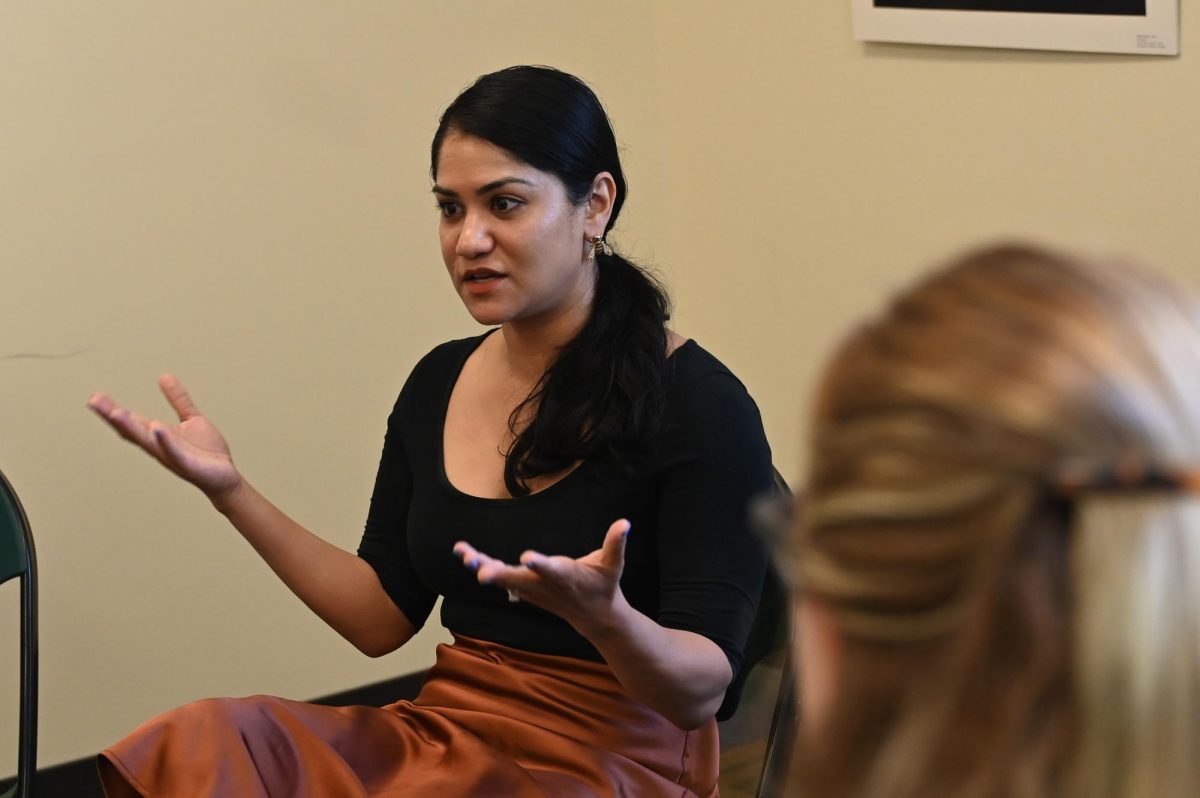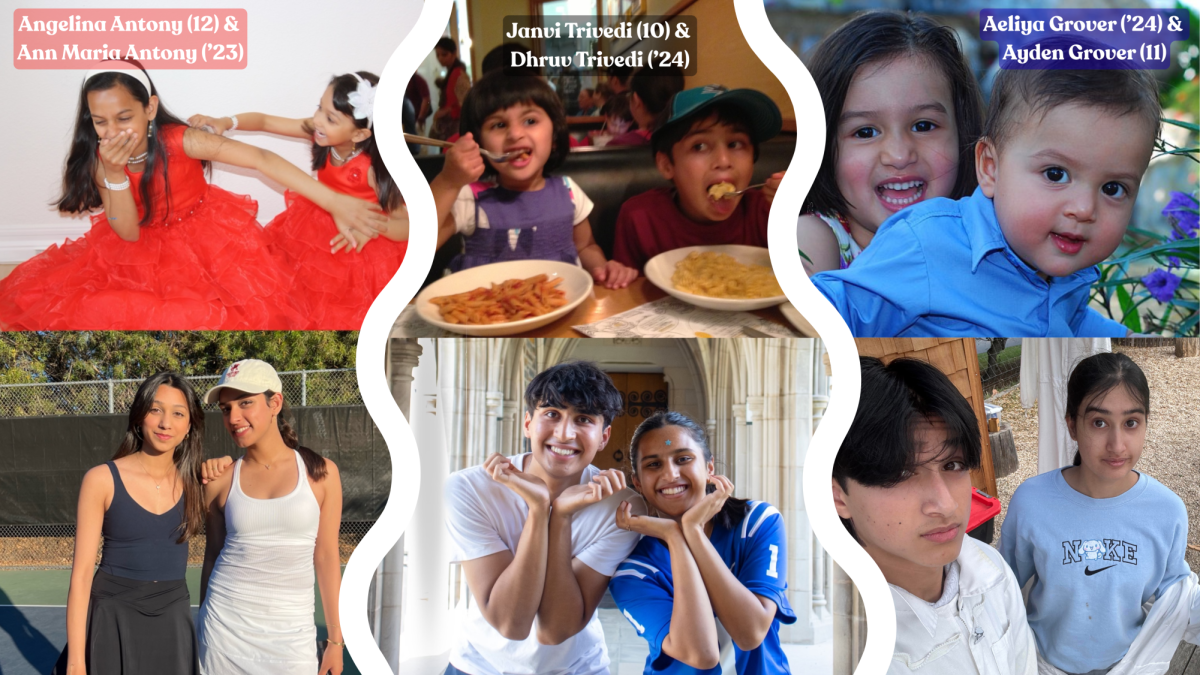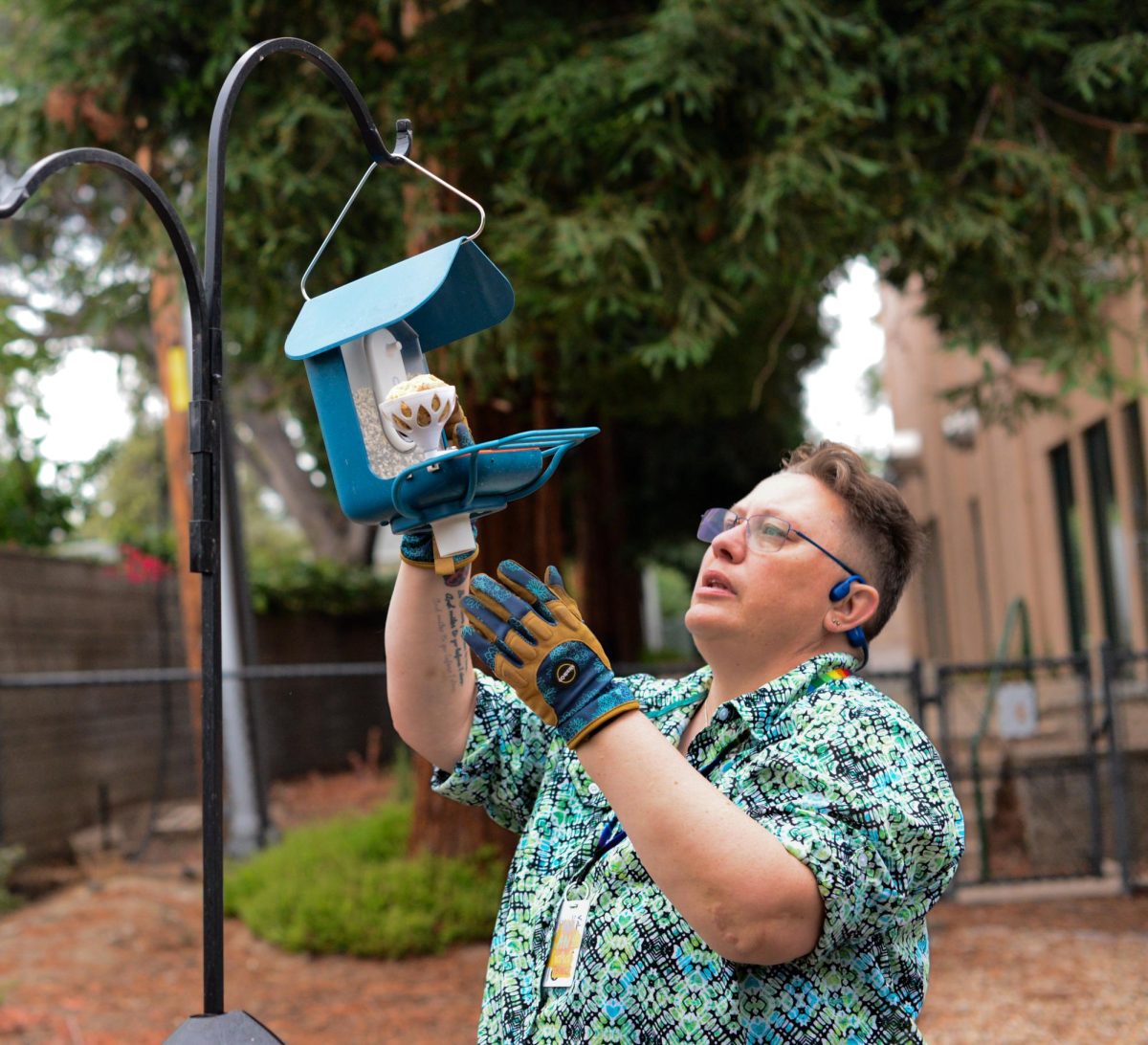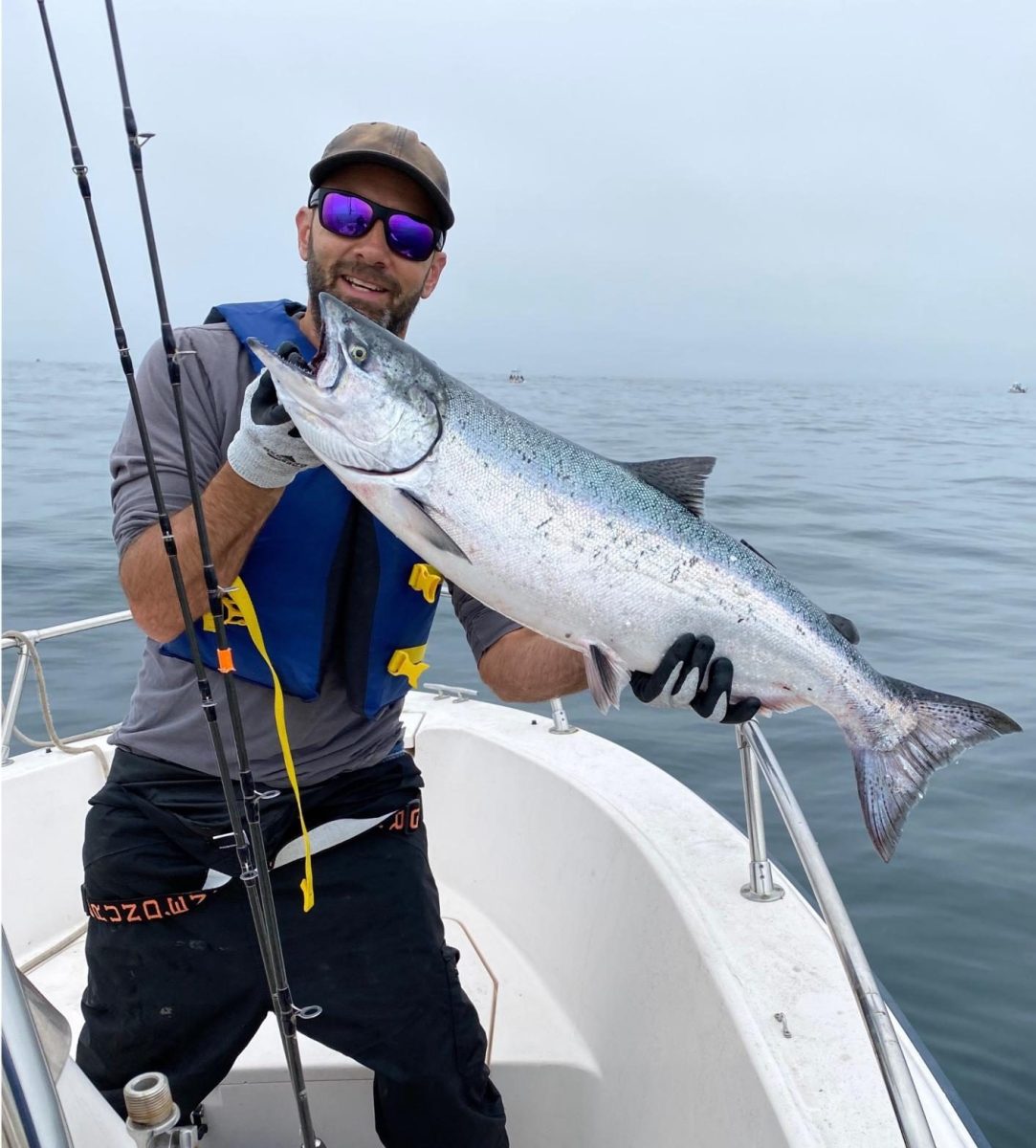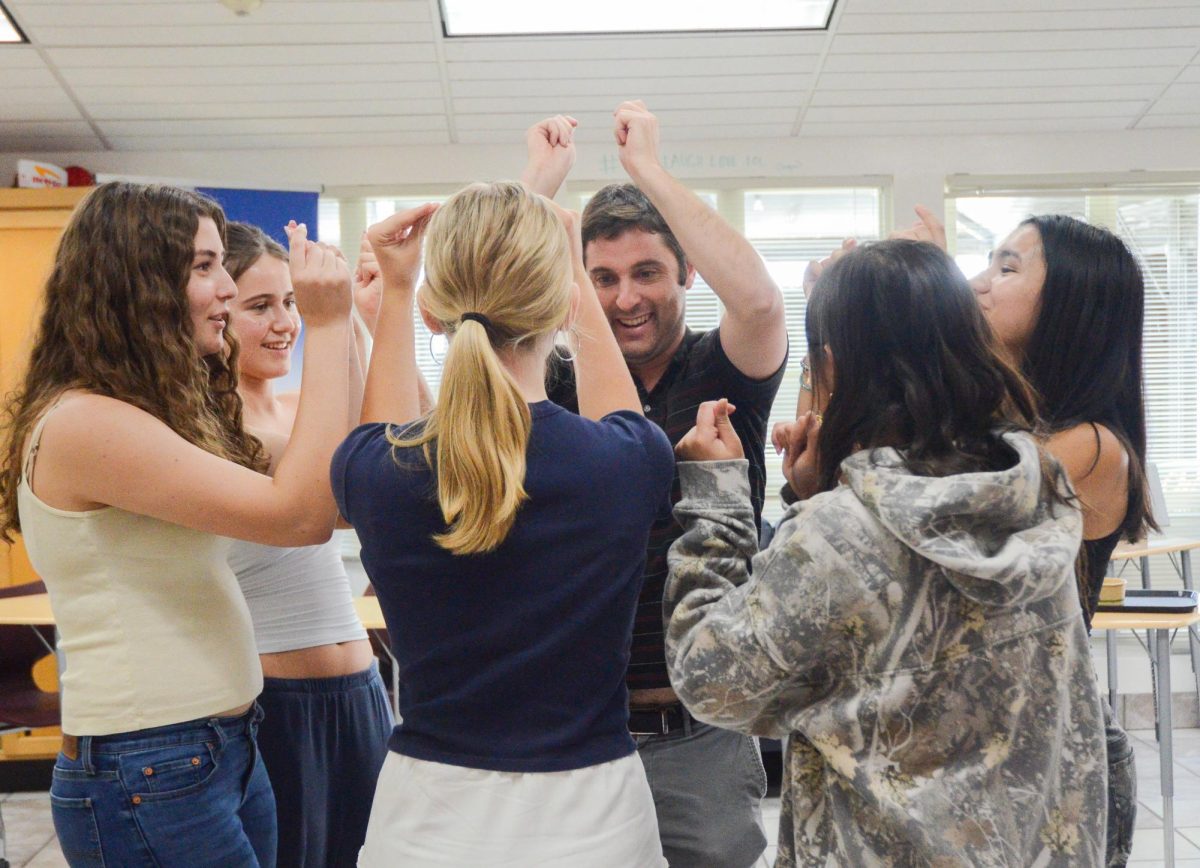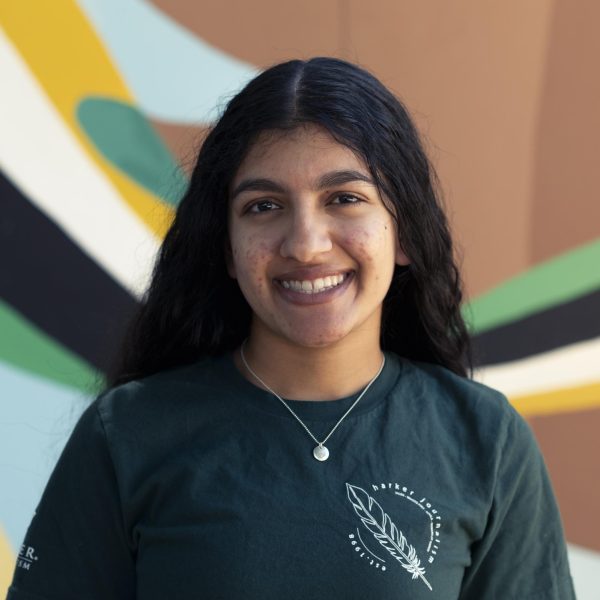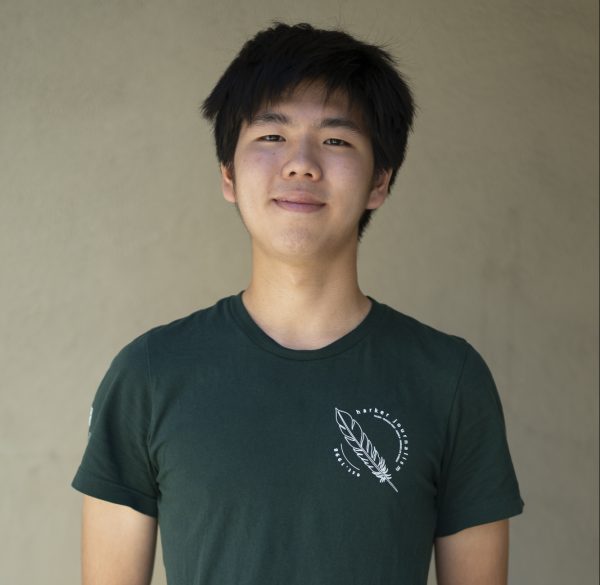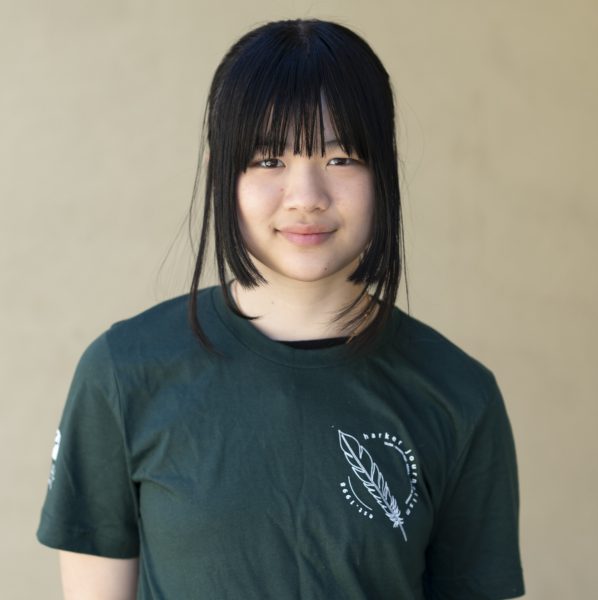Sophomores, juniors and seniors participated in ReCreate Reading sessions to discuss their chosen novels on Aug. 24.
Organized by the upper school librarians, ReCreate Reading is a program that incentivizes students to engage in summer reading and allows them to choose a book from a wide collection of literature sponsored by a teacher or a student. This year, two authors attended the ReCreate session in person or virtually, providing insight and allowing students to ask questions about their novel.
Ray Nayler was a featured author who spoke virtually to students in a session hosted by science teacher Marina Peregrino, who is also his aunt. He discussed his science fiction novel, “Mountain in the Sea,” which depicts humans’ investigation of an intelligent octopus species and questions the cynical influences of technology and corporate powers in a dystopian future.
“Creativity is kind of like an iceberg,” Nayler said. “There’s a chunk of that creative mind that’s above the water that you can work with. And then underneath that, there’s all of these influences that you have, and all these other things that are going on, and all this background pattern that kind of comes up into the writing.”
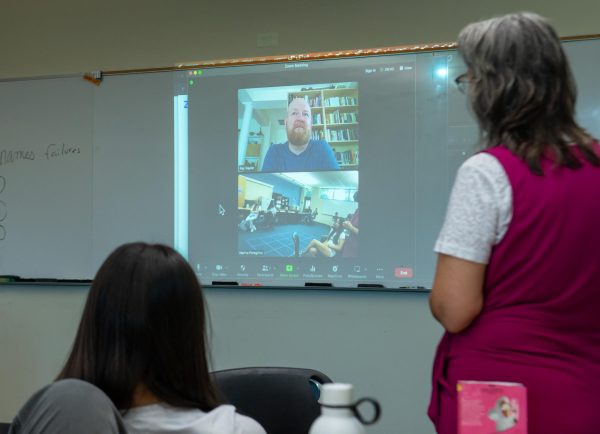
Towards the end of the session, Nayler discussed his favorite aspect of writing, research. While writing Mountain in the Sea, for instance, he explored marine biology and biosemiotics. The element of autonomous exploration appeals to Nayler, who encourages readers to explore all the possibilities in his books by deliberately leaving room for ambiguity.
“I don’t like endings to be fully closed off,” Nayler said. “I like to leave them so that you can think about what’s going to happen next and fantasize about it, and [you can] maybe write your own story a little bit beyond the story in the pages. I like to give people that opportunity; I don’t want to just tell them everything and wrap it up neatly because that’s also not how life works.”
In upper school mathematics teacher Dr. Anu Aiyer’s visiting author session, Parini Shroff, author of “The Bandit Queens,” spoke with readers and answered questions about her research and process while writing the novel. The book follows Geeta, a woman who is ostracized after being falsely accused of murdering her husband. As the plot unfolds, Shroff weaves in details of the real-life Bandit Queen Phoolan Devi, an Indian bandit-turned politician. Devi was famous for robbing higher-caste villages and organizing a massacre, for which she went to prison for 11 years. After serving her time, Devi went on to become a standing Member of Parliament.
During the session, Shroff expanded on her inspiration to write about issues such as gender roles in India, caste system discrimination and abusive marriages.
“Just being in this world, you will encounter various situations that make you uncomfortable,” Shroff said. “This novel takes that to an extreme for me, not that these situations aren’t actually experienced by women everywhere. It was taking my experiences and jacking it up to eleven, and then putting myself in people’s shoes.”
Tiana Salvi (11), who attended the session, especially enjoyed the relevant topics Shroff addressed in the novel.
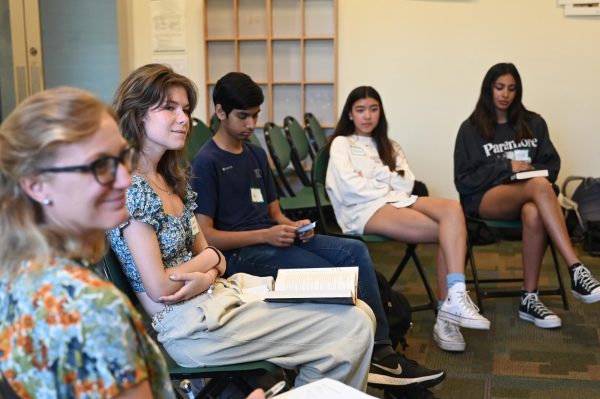
“I liked that the issues were really nuanced,” Tiana said. “Even the smaller ones [she] touched on like colorism, education on women’s bodies, abusive relationships in general and stigmas surrounding divorce and rape in marriages, since they’re such big issues in South Asian and Asian culture.”
After students shared their favorite moments from the novel, Shroff answered questions about her perception of the characters she wrote and their inspiration. When asked which character she relates to most, Shroff answered with Geeta, the protagonist.
“Sometimes I’ll just say the opposite of what I’m thinking, and I don’t mean it, and I’ll be really hard on myself, like Geeta,” Shroff said. “But she’s also rash, and she’s sensitive with a soft underbelly. [I] take times that [I] felt a certain way, inject them into a character, and then let them fly.”




![LALC Vice President of External Affairs Raeanne Li (11) explains the International Phonetic Alphabet to attendees. "We decided to have more fun topics this year instead of just talking about the same things every year so our older members can also [enjoy],” Raeanne said.](https://harkeraquila.com/wp-content/uploads/2025/10/DSC_4627-1200x795.jpg)


















![“[Building nerf blasters] became this outlet of creativity for me that hasn't been matched by anything else. The process [of] making a build complete to your desire is such a painstakingly difficult process, but I've had to learn from [the skills needed from] soldering to proper painting. There's so many different options for everything, if you think about it, it exists. The best part is [that] if it doesn't exist, you can build it yourself," Ishaan Parate said.](https://harkeraquila.com/wp-content/uploads/2022/08/DSC_8149-900x604.jpg)




![“When I came into high school, I was ready to be a follower. But DECA was a game changer for me. It helped me overcome my fear of public speaking, and it's played such a major role in who I've become today. To be able to successfully lead a chapter of 150 students, an officer team and be one of the upperclassmen I once really admired is something I'm [really] proud of,” Anvitha Tummala ('21) said.](https://harkeraquila.com/wp-content/uploads/2021/07/Screen-Shot-2021-07-25-at-9.50.05-AM-900x594.png)







![“I think getting up in the morning and having a sense of purpose [is exciting]. I think without a certain amount of drive, life is kind of obsolete and mundane, and I think having that every single day is what makes each day unique and kind of makes life exciting,” Neymika Jain (12) said.](https://harkeraquila.com/wp-content/uploads/2017/06/Screen-Shot-2017-06-03-at-4.54.16-PM.png)








![“My slogan is ‘slow feet, don’t eat, and I’m hungry.’ You need to run fast to get where you are–you aren't going to get those championships if you aren't fast,” Angel Cervantes (12) said. “I want to do well in school on my tests and in track and win championships for my team. I live by that, [and] I can do that anywhere: in the classroom or on the field.”](https://harkeraquila.com/wp-content/uploads/2018/06/DSC5146-900x601.jpg)
![“[Volleyball has] taught me how to fall correctly, and another thing it taught is that you don’t have to be the best at something to be good at it. If you just hit the ball in a smart way, then it still scores points and you’re good at it. You could be a background player and still make a much bigger impact on the team than you would think,” Anya Gert (’20) said.](https://harkeraquila.com/wp-content/uploads/2020/06/AnnaGert_JinTuan_HoHPhotoEdited-600x900.jpeg)

![“I'm not nearly there yet, but [my confidence has] definitely been getting better since I was pretty shy and timid coming into Harker my freshman year. I know that there's a lot of people that are really confident in what they do, and I really admire them. Everyone's so driven and that has really pushed me to kind of try to find my own place in high school and be more confident,” Alyssa Huang (’20) said.](https://harkeraquila.com/wp-content/uploads/2020/06/AlyssaHuang_EmilyChen_HoHPhoto-900x749.jpeg)



